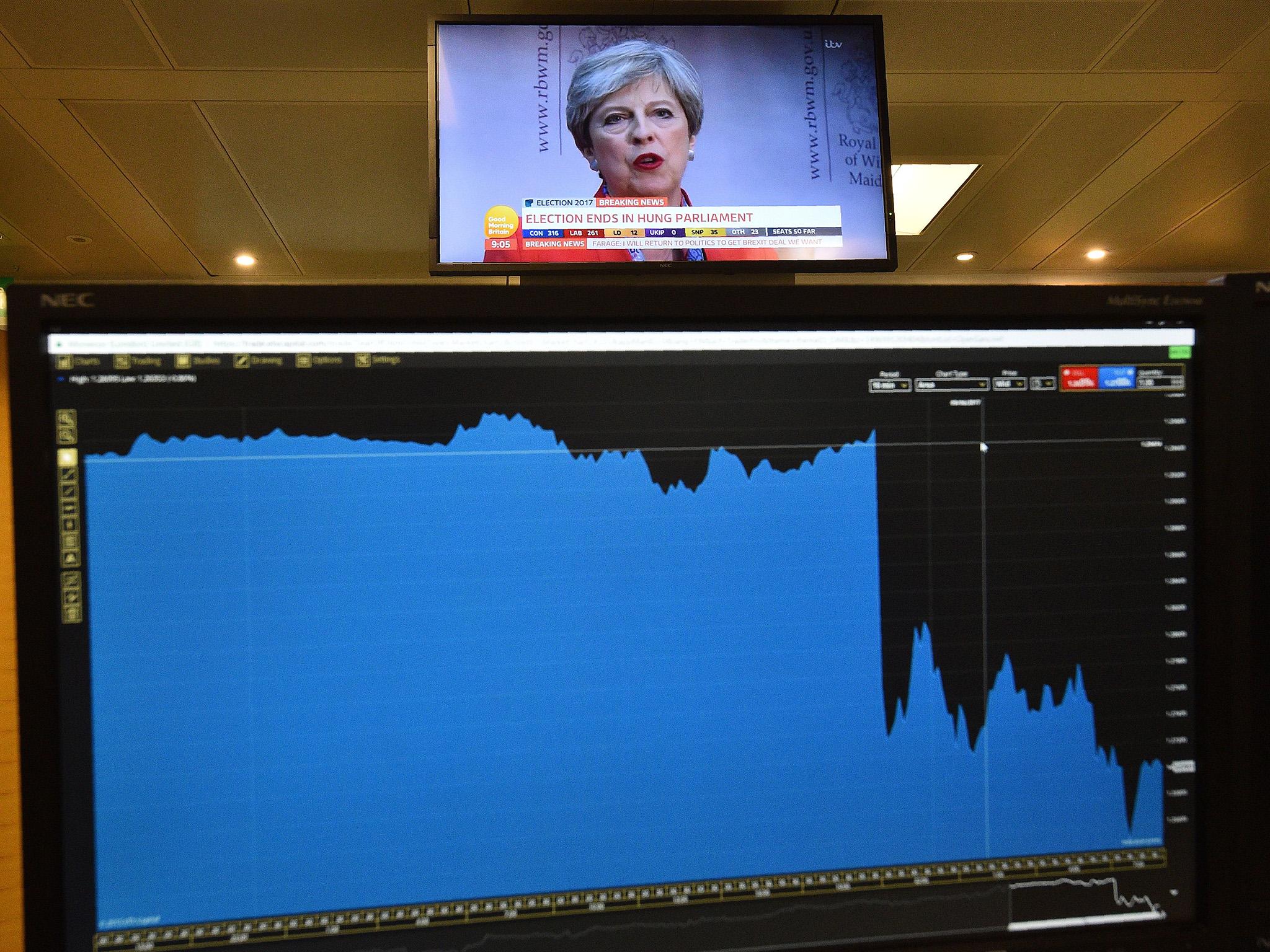Theresa May is due to start Brexit negotiations with the EU on Monday in an embarrassingly weak position
I am told that the mood among EU negotiators is: ‘What’s the point of bending over backwards to do a deal with a country that is going down the plughole?’


Your support helps us to tell the story
From reproductive rights to climate change to Big Tech, The Independent is on the ground when the story is developing. Whether it's investigating the financials of Elon Musk's pro-Trump PAC or producing our latest documentary, 'The A Word', which shines a light on the American women fighting for reproductive rights, we know how important it is to parse out the facts from the messaging.
At such a critical moment in US history, we need reporters on the ground. Your donation allows us to keep sending journalists to speak to both sides of the story.
The Independent is trusted by Americans across the entire political spectrum. And unlike many other quality news outlets, we choose not to lock Americans out of our reporting and analysis with paywalls. We believe quality journalism should be available to everyone, paid for by those who can afford it.
Your support makes all the difference.The first rule of a negotiation is to try to see yourself from the other side’s point of view. In the case of the Brexit talks, which will start in Brussels on Monday, this is not a pretty sight.
Our negotiating partners think we British have taken leave of our senses. They didn’t understand our referendum vote to leave the EU. They couldn’t see why we got rid of David Cameron. They were baffled by our friendliness towards Donald Trump.
But now they think we have really blown it. They see a Prime Minister who asked for a stronger Brexit mandate and didn’t get it, beset by cabinet splits, and who is still trying to put together a deal to give her the votes she needs in Parliament. They wonder, not surprisingly, if we are really ready to start on Monday.
It doesn’t help, as The Independent reported yesterday, that the UK has not yet submitted its position papers for the first meeting. But the EU negotiators don’t need to see the paperwork, and they do not need their diplomats to report back via private channels, to know what the mood is on the British side. They can see from the media a Government in disarray. Although they are ready to talk and are impatient to get on with it, they wonder if the British side know what their instructions are.
They read, just as we all do, that David Davis, the Brexit Secretary, insists that “nothing has changed” – the hollow phrase echoing from the Prime Minister’s U-turn on a social care cap in the election campaign – but they know that Philip Hammond, the Chancellor, Amber Rudd, the Home Secretary, and other senior ministers think that the specifications for Brexit do need to be altered.
Nor is this just a matter of being ready for Monday’s meeting. I am told that the mood among EU negotiators is: “What’s the point of bending over backwards to do a deal with a country that is going down the plughole?” If May is not going to be Prime Minister for long, they think, why spend time, effort and political capital on trying to reach an agreement with her?
Some of this is unfair. The continental press can be as extravagantly scathing as our own. One of the Dutch newspapers featured a cartoon of May hitting herself with a hammer. Yet it is worth pointing out that many of our EU partners are familiar with the idea of unstable governments. The Netherlands, for example, had an election three months ago and still hasn’t formed a coalition.
At least May is as certain as she can be that she can win the vote with DUP support after Wednesday’s delayed Queen’s Speech.
And in the end, the fundamental incentives in favour of a Brexit deal remain in place. The most important thing to note is that what the EU side calls a “disorderly exit” – the UK leaving without having agreed terms – would be damaging to all EU members. “Even Malta would take an economic hit,” said one source.
Because of this, a second incentive comes into play, which operates on Michel Barnier himself. The EU’s chief negotiator wants to succeed Jean-Claude Juncker as President of the European Commission, whose term comes to an end in late 2019. The best route to this ambition would be to follow Juncker by being chosen as the Spitzenkandidat, the leading candidate, of the European People’s Party, the centre-right grouping in the European Parliament.
And the best way to do that would be to deliver a Brexit deal that EU leaders regarded as firm but fair. Although Emmanuel Macron, the French President, said that the “door remains open” to Britain staying in the EU, most EU leaders think that is unlikely, and our election and its aftermath haven’t really changed that.
So a deal can be done, but are we British ready to start discussing it?
Join our commenting forum
Join thought-provoking conversations, follow other Independent readers and see their replies
Comments